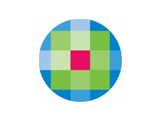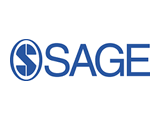Mosaic, a new digital publication dedicated to exploring the science of life, launches today offering content that anyone can read, share and reproduce for free.
Mosaic, which is published by the Wellcome Trust and goes live on 4 March 2013, is not only dedicated to providing quality long-form science journalism to be read freely by all, but will also allow its content to be distributed on other platforms through a CC-BY Creative Commons publishing licence.
Mosaic will focus on compelling narrative-based content, with articles and films telling in-depth stories behind biomedical research and its impact on society. The launch edition includes a feature about the safety of cycling in cities, an interview with cognitive scientist and eternal optimist Professor Steven Pinker, a story on the future of the female condom, an exploration of the clues to Alzheimer’s disease and a film about what it is to be (ab)normal.
Several high profile writers have been commissioned to write for Mosaic, including Carl Zimmer, Rose George, Ed Yong and Jenny Diski, with future editions looking at topics such as drug resistant malaria, blood groups and asbestos.
The Creative Commons (CC-BY) licence allows content from Mosaic to be reproduced anywhere, including paid-for websites and magazines and publications that are funded by advertising, as well as independent blogs. Articles can be reproduced partially or in full, provided that the source is acknowledged. This publishing model runs alongside the Wellcome Trust’s commitment to Open Access, enabling Mosaic articles and the issues they engage with to reach as wide an audience as possible.
Jeremy Farrar, Director of the Wellcome Trust said: “The Wellcome Trust is committed not only to funding research that drives advances in health, but also to embedding this research in the cultural landscape. That means encouraging people who are not scientists to become engaged with life sciences, the medical humanities, and the issues they raise, including the work we fund but certainly not limited to it. We believe that in-depth features and excellent journalism make an important contribution to this, and are therefore proud to support them through the launch of Mosaic today.”
Mark Henderson, Editorial Director of Mosaic and Head of Communications at the Wellcome Trust said: “Mosaic is commissioning some of the best science writers out there to explore the most fascinating issues in the field of biomedical research today. We’ll use their talent for making the complex compelling to engage people who are curious about science, but who don’t have specialist expertise. Then we’ll give their work away, so that any publication that wishes to can republish it for free, and these great features can reach the broadest possible audience.”
Claudia Hammond, author and broadcaster commented: “There are lots of good science articles online already, but they’re often fairly short. The launch of Mosaic will give people the chance to read longer in-depth features by some great science writers, and I am really looking forward to it!”
Roger Highfield, Director of External Affairs at the Science Museum Group and a member of the Mosaic Editorial Advisory Group commented: “We’re often told that online culture is eroding our capacity to think, based on the false assumption that it provides the literary equivalent of fast food that diminishes interest in long form writing. Mosaic is part of a wider online trend that shows this is bunkum. The web is spurring a resurgence in our ability to tell, and share widely, memorable and powerful stories at a length dictated by the writer rather than page design or advertising income. Long live long form journalism!”
While Mosaic will explore new trends and emerging themes in biomedical science and the medical humanities, areas in which the Wellcome Trust funds, its content will not be restricted to research funded by the Trust. When Mosaic does cover Trust-funded research, the editorial policy will ensure transparency in outlining the Trust’s involvement.
Writers and contributors to Mosaic will also be encouraged to blog about their progress and create additional content to engage their readers, with discussion continuing on the
Mosaic blog after publication. Mark Henderson adds: “Science doesn’t stop at publication, so neither should we.”



































